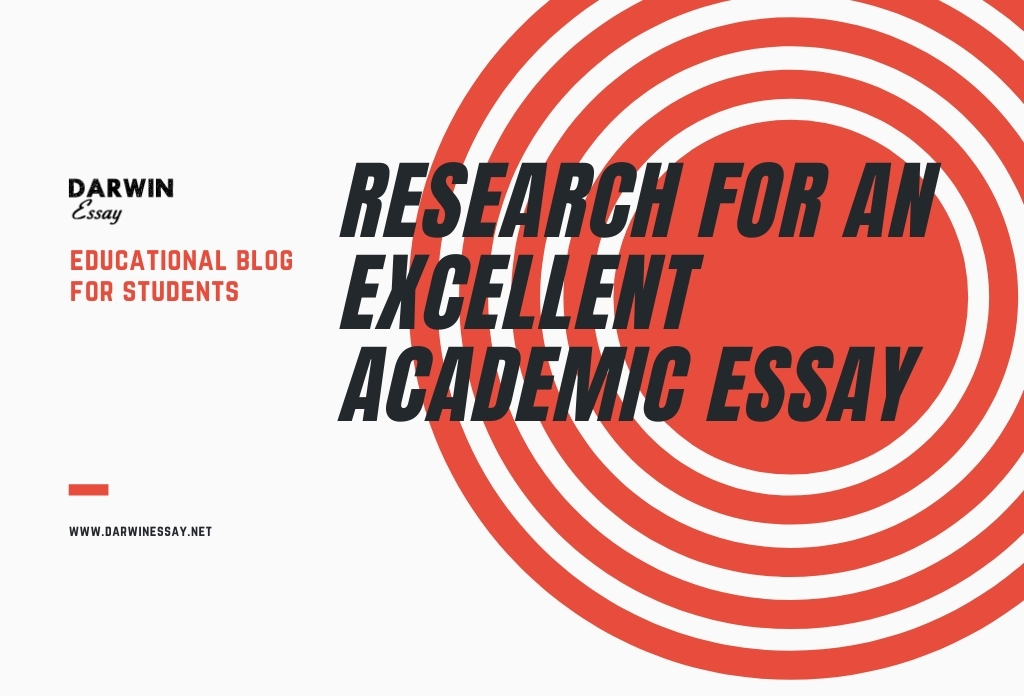Tips for doing good research for an academic essay
FOR STUDENTS
If you find yourself lost when researching for your academic paper or essay, it’s time to introduce some structure. Just like the process of writing an essay can be broken down into specific steps, so can be your research and preparation. This way, you can easily micromanage each incremental step of the process along the way and feel like a professional researcher.

Follow our short guide to have the best research possible!
Identify what to read
To have a meaningful research experience, you need to start with a solid reading list for the topic. If this hasn’t been provided by your academic advisor, it’s time to do some research about your research, however ironic this might sound. The perfect way to look for the relevant sources is to skim through the list of references listed in similar modules. If this doesn’t work out, try looking for some articles with similar topics and compile a reading list based on their references. In any case, Google Scholar always seems like a good place to start.
Peruse the relevant sources
Once you’ve compiled a basic reading list for the topic, there comes the most tedious part. You need to peruse each of the sources trying to identify the key information. You can start simply by reading abstracts and conclusions. It will give you the most basic idea of what a particular paper is about. Once you have identified the most relevant papers, you might want to start taking notes. However, the simpler way is just to copy the most relevant bits of information to a separate document and indicate the source and page from where a quote is taken. This action will save you tons of time and prove to be the most valuable part of your research.
Expand your reading list by following references
Sometimes this step can be omitted. However, if you want to write like a pro, it would be a great idea to broaden the list of sources by following the references mentioned by the authors from your main reading list. Go through references and select sources the most relevant to your topic. This decision is a great way to find more specialized research and can be especially helpful if your topic is quite narrow.
Analyze your reading list and quotes
Go through your reading list and notes to identify which authors are mentioned more than others. Most probably, they are the key figures in a particular field of research. It’s worth checking out their works, as they often lay down the framework for further studies. It will also help you keep things in perspective and identify derivative and original research on the topic. Furthermore, try to find the authors whose ideas are often contended or mentioned in a controversial context. This might shed light on the most problematic issues of your topic.
Identify the key sources
Once you’ve researched a broader body of literature, it’s time to narrow down and pick out the most relevant resources to your topic. These articles and books are selected for further in-depth study. They are the ones to help you come up with brilliant ideas and develop your argumentation.
Highlight the most important aspects
As you’re getting closer to writing the essay, it’s time to work on your notes once again. What are the key ideas expressed in the relevant sources? Are there any “mental black spaces” you would like to fill with further research? If you feel like you’ve compiled a pretty decent bank of ideas, now it’s time to organize your thoughts, which brings us to the last point.
Draw up a plan
Creating a plan will save you a lot of time and ensure that your paper writing process is streamlined and well-organized. Don’t worry if you can’t come up with exact wording for your key points or their sequence. Remember that every point can be revisited and developed further. Your main job at this stage is to come up with some sort of structure that most likely will be changed throughout writing an assignment, however, which will prove invariably helpful in organizing your thoughts on paper.
Use some citation software and online tools
Providing a list of references in a particular format may be difficult and time-consuming. It requires great attention to detail. Luckily, most sources nowadays can be cited automatically by using special software. This can be done both before or after writing your academic paper or essay. If you know what sources you are going to reference, don’t hesitate to use Zotero or other citation programs. Alternatively, you can apply an online tool such as Cite this for me where you can format your reference in Harvard style. Other tools for referencing sources in MLA, APA, Chicago, and Vancouver formats are also available online. Using such resources will save you a lot of valuable time for further research!
Don’t be afraid to go overboard with your readings
Assigning a particular number of readings for a topic might be tricky and, at times, even unnecessary. Your academic advisor shouldn’t limit you with a particular number of articles to read, especially, when you feel that you’ve found the right number of sources. In the end, what matters is how much original research is in your paper, and all the sources become just a springboard for your imagination!
We hope you have found our steps helpful and not too complicated. Remember, if some of the steps don’t work for you, you can skip them entirely only to come back to them later on. The creative process is elusive and cannot be limited by a set of essay writing rules. Nonetheless, our tips might be especially helpful for complete novices who don’t know how to organize their paper writing. Finally, even seasoned students may find these tips refreshing and are most welcome to apply them in their research.



